Helen Tope has written reviews of Elle and Prevenge, taking a look at both films individually and also in comparison, which were shown in the PAC cinema from 24 – 30 March.
Elle tells the story of Michele Leblanc, a career woman living in France who is subjected to a horrifying attack in her own home. Raped by a masked intruder, Leblanc (played by Isabelle Huppert) suppresses what has happened to her, even sweeping away the debris of the attack with a detachment that seems barely human.
We later learn that Leblanc’s reluctance to make public her ordeal stems from her father’s notoriety as a mass murderer. Having killed several of his neighbours in a frenzied attack, he instigates 10-year-old Michele to help him destroy his clothes and set fire to their family home. Leblanc and her family pay the price for the father’s sins with a name and reputation that while faded, cannot be entirely forgotten.
While her motives are hard to discern, especially as the film progresses, it is made clear that ‘Elle’ is complex and unapologetic about being so. No-one else but Huppert could play this part. Equally skilled in comedy and drama, emotions flit across Isabelle’s famously-expressive face like clouds and sunshine. A clever remark, a joke, or a flashback – everything reveals itself without annotation or explanation.
This is a film whose success relies on tone; a hair either way and it’s ruined. Director Paul Verhoeven manages that balance by allowing the full sharpness of the film’s humour to be felt. It punctures the moments of horror, making us feel both the horror and humour with a heightened sense of awareness.
Elle deliberately leans away from traditional depictions of femininity. The glossy, polished exterior Michele portrays is at odds with her role in a male (and youth) dominated industry; gaming. She gives notes on highly-sexualised game characters while her male subordinates take direction. Leblanc seems not remotely phased by the depiction of her games’ female characters; submissive, ever receptive and barely clothed. The two-dimensional nature of the world she creates is a fiction without consequences. Leblanc’s childhood experience has taught her that people can often create fictions for themselves, even when common sense should tell them that the truth is rarely that simple. Leblanc lets the insults run off her back, she tells her neighbour Patrick (Laurent Lafitte), although the way Michele organises her life suggests the opposite. Used by her father, Michele’s relationships with men is somewhat skewed. Mocking and chastising her only son, conducting an affair with her best friend’s husband – none of this suggests that Michele has left the past behind her. It is right there, in everything she does and says.
Leblanc’s ability to compartmentalise her trauma, continuing as if nothing has happened, gives us a very different definition of ‘victim’ compared to what we are used to seeing in modern cinema. Verhoeven lets us see comparatively little of Michele’s inner processing of the trauma. The scene where she confesses her assault during a meal with friends is a master-class in understatement. The waiter is asked to delay popping the cork on their bottle of champagne. The trauma eventually begins to express itself, not in tears and grief, but in a dangerous, self-destructive curiosity. Michele becomes fascinated with her attacker, and their relationship quickly crosses a line. Verhoeven and Huppert do not make judgements, but present the relationship for our consideration.
Where Elle particularly excels is the exploration of abnormality; what we are willing to tolerate and what we find unacceptable. An obsession with Catholicism that leads to murder; a harmless foot fetish and rape, a crime still punishable by death in several countries. Michele’s relationship with her attacker makes for deeply uncomfortable viewing, as Leblanc toys with her rapist, drawing him in ever closer. Elle has met with some controversy on its release, and it’s not a film intent on creating universal appeal. Elle instead decides to focus on the proximity of violence and sexuality in our culture. Computer games that make a regular feature of sexual domination over female characters; revenge fantasies, and the disturbing increase in revenge porn: censure isn’t Verhoeven’s style, and while the film asks some interesting questions, nothing is truly resolved.
What the film offers us instead is a collective of strong female characters. Michele’s relationship with her best friend Anna (played by Anne Consigny) is instantly recognisable: Anna softens Michele’s battle-hardened edges; she is someone Michele sees as an equal, a rarity in Leblanc’s world. Their relationship is made more complex by the revelations that they gave birth to their children at the same time; one lived, one was stillborn. Anna, with Michele’s permission, breastfed Michele’s son Vincent. Leblanc later muses whether this explains the nurturing closeness between her son and Anna. The mother-son relationship diverges to ask – what makes a mother? Michele’s evident disappointment in her son is keenly felt – and it isn’t until the end of the film that Michele can open herself up to the possibility of building an attachment with her son. It’s not perfect, but it’s there.
Also thrown into the mix is Michele’s deeply complicated relationship with her mother Irene (played with aplomb by Judith Magre). Both subjected to the fallout of the crime Michele’s father committed, Irene has been more successful in moving on with her life. She dazzles next to her muted daughter; still vibrant, and enjoying a series of younger men – all paid for their services. Michele’s disapproval is highly watchable, and the scenes between Huppert and Magre are excellent.
In these relationships, we see Michele most clearly – her potential rather than her history. She is a truly engrossing character, not least for her total inability to conform. It is a quality that film-maker Alice Lowe exploits to full effect in her debut feature, Prevenge.
Lowe comes to film via a career built on small television roles. Some of her more substantial roles include the sitcoms This is Jinsy and Garth Marenghi’s Darkplace. It is no accident that Lowe’s presence chimed so well with these subversive, left-field comedies. Placing Lowe in this context is your best route into her work. Prevenge (a term the Urban Dictionary describes as “like revenge, but without waiting for the act to occur”) has already been wowing the critics, and has won Lowe (its director, screenwriter and lead actor) the Screen International Rising Star Award.
Prevenge, a slither of a film at 89 minutes, hits you with a series of bold, unforgettable images thanks to Lowe’s innovative script. Casting herself as Ruth, a pregnant, recently bereaved woman, in Prevenge, Lowe shows us the world through a glass darkly.
Ruth, we discover, has been unhinged by the tragic loss of her baby’s father. As with Elle, the protagonist channels her emotions not in the way we might expect, but instead they become warped and twisted by the violence of her grief.
Ruth seeks revenge for her deceased partner who is killed during a climbing accident. She holds his teammates responsible, who let Ruth’s partner fall to save themselves. Ruth seeks redress with a stark, brutal directness. Listening to a voice she believes is her unborn child, she begins to kill. First for practice, and then she becomes more selective, zeroing in on the climbing team, one by one. Innocents get caught in the crossfire as Ruth plots and executes her revenge. Lowe doesn’t make this an easy film for the audience. Some victims are culpable, other wholly unaware of any crime. Ruth’s indiscriminate actions are meant to repel us but at the same time, the cartoon-ish quality of the violence meted out dulls its impact. We cringe, but we laugh at the same time.
What is noteworthy about Prevenge is the fact it gives so much screen time to the mother-to-be. The woman’s thoughts and feelings take centre stage, however unsettling and inappropriate they may seem. She is not the incubator for a new life, she is the driving force of the narrative. Lowe brilliantly dissects the emotionally sanitised language that pervades the world of maternity care. What’s best for baby isn’t always what’s best for mum, and Lowe takes this idea to its most extreme conclusion. Prevenge poses a direct challenge to the idea that pregnancy and childbirth are ‘natural’ and following Nature’s rhythms should come easily to those who give themselves up to them. This is explored with great skill during Ruth’s medical check-ups with her midwife (played by Jo Hartley). Hartley’s performance is particularly memorable, as The Midwife merrily measures the baby’s development, while failing to fully register the alarming psychological cues Ruth is giving her. The Midwife is unable to break away from the well-practised patter, the soft-sell of maternity care. Baby will tell you what to do, she tells a desperate Ruth. Lowe makes the interesting point that the Midwife is as much trapped in her environment as Ruth is in hers. They are both caught in a system designed for the average, the uncomplicated. Complexity does not feature.
Where Elle treads carefully with its tone, Prevenge plays fast and loose. Alice Lowe sends her film scattering between empathy and disgust, and it’s a film that will garner opinion, even if it doesn’t care which side of the aisle you sit.
Prevenge evokes laughter by any means necessary, and despite the gore, its reputation as a comedy with the blackest of edges is well-founded. You will laugh in spite of yourself, and that’s just how Lowe likes it.
As a film by a woman, about a woman, it hits every button in the feminist ‘F’ rating. But Prevenge goes deeper, looking at how we treat women – and pregnant women in particular. Ruth is the most unlikely heroine, but beneath her disturbed mania is a wider truth about how pregnancy can make women feel, and how that often goes unacknowledged by the medical profession and society at large. The warm cosiness of a happy, glowing pregnancy – a myth, argues Lowe – is stripped bare. Lowe leaves us with a fresh viewpoint – one that makes clear that the business of childbirth is tumultuous, bloody and undignified. The messages we receive about pregnancy and motherhood are just as contrary as the ones in Ruth’s head.
Both Prevenge and Elle ask the question: what is natural? Our preconceived notions of womanhood – especially when applied to film – gives a very one-dimensional response to what it means to be a woman. Wife, mother, sister, friend, victim – the roles aren’t exactly unlimited, so it’s no wonder that some film-makers resort to creating their own. Both films succeed in rewriting the rules to some extent; Michele, playing her game of nerve with her attacker, and Ruth, a woman so tormented by grief only diabolical action can answer it. They are neither of them typical cinema characters, and their uniqueness is rather sadly compounded by the fact that they are female.
Where the films leave us is at a critical (and cultural) juncture. What will happen if we continue moving forward, as opposed to retreating into the safety of characters and plots well-drawn and well-loved? There’s no blueprint for Michele or Ruth, and while working beyond a framework can be an exhilarating prospect for some film-makers, others require something to push against in order to create something new. While Prevenge’s rampaging heroine is a true original, Elle’s notions of femininity bounce off cultural norms and stereotypes, creating a separate dimension in which ‘Elle’ can freely exist.
A non-generic character that lives in a space recognisable to us all with its casual (and not so casual) sexism, but chooses to fashion her own responses. Michele and Ruth are not easy to pin down, or even predict, and that’s what makes Elle and Prevenge such fascinating films. They come at the feminist problem by different routes, but ultimately reach the same conclusion.
This conclusion suggests that there is scope for newer voices to be heard, and further more there are audiences ready to listen to what they have to say. Despite its reliance on formula, in contemporary cinema there is still room for more: more definition, more chaos, and there always has been. It remains the task of film-makers like Verhoeven and Lowe to broaden our perspective, and continue giving us something beyond the ordinary. Observe. Challenge. Provoke. It’s no less than we deserve.
Helen Tope is a freelance writer working and living in Plymouth.
@Scholar1977
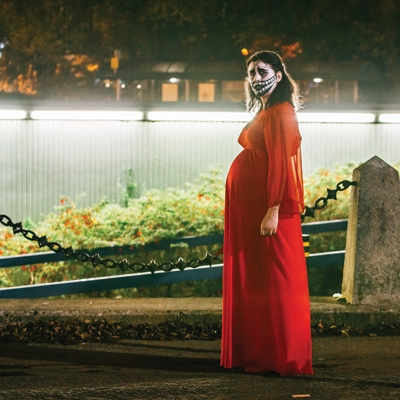
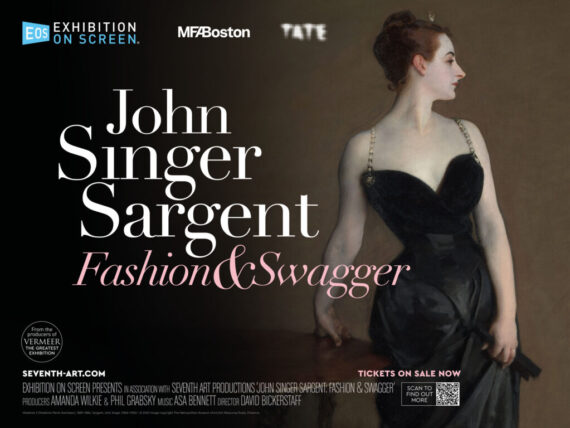



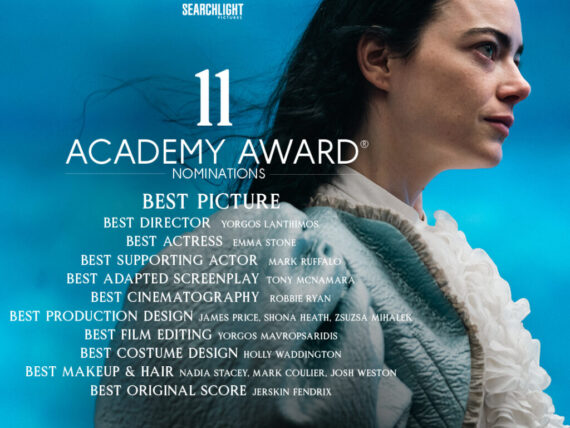
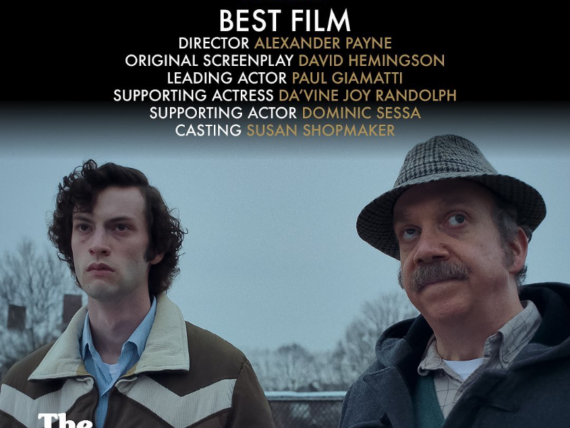
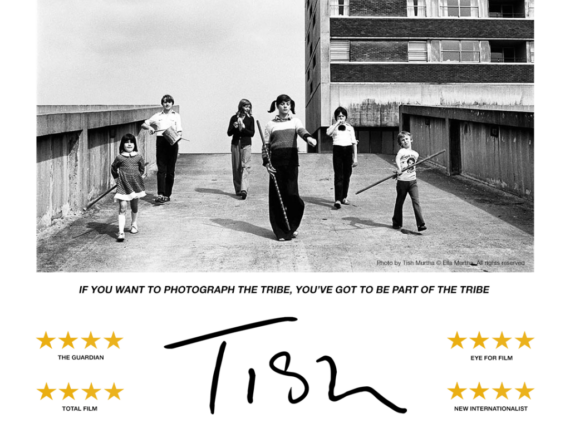

Comments
Comments are closed.